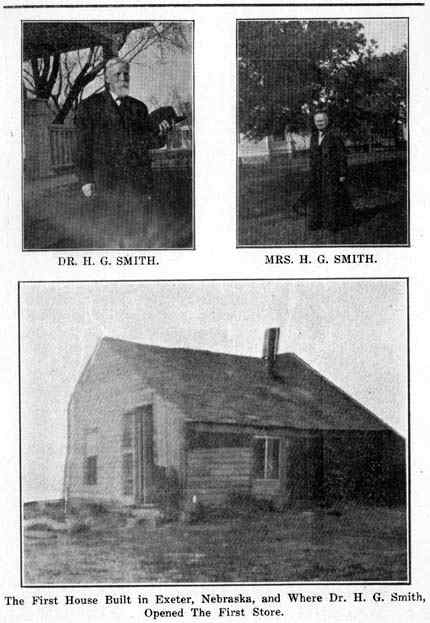![]()
|
vide between the south fork of the Blue River and the Turkey Creek, its chances of development seemed meagre and precarious. It may prove interesting to future generations to place on record with these stories a few of the early "Siren calls." First, we have the words inviting people to take up a homestead:--
|
![]()
|
grounds, Dr. T. C. McCleery, Mr. A. B. Vennum, Mr. T. H. L. Lee, Mr. George C. Gillan, Mr. Wm. Dyer, Mr. F. M. Ziska, Mr. F. O. Fritz, and a picture of the Exeter National Bank, all of which cuts were lost in an unfortunate fire. |
![]()
EXETER, NEBRASKA.Exeter was located on the east half of Section 20, Township 8, Range 1, west of the sixth principal meridian, most of the ground occupied by the village being a part of the original homestead taken up by Dr. H. G. Smith who settled thereon in the winter of 1871. His was the south-east quarter of section 20, while J. W. Dolan homesteaded the north-east quarter, William Dolan took the north-west quarter and John Dayton and William N. Babcock an eighty each on the south-west quarter and all about the same time. Of course there were no railroads, telegraphs, telephones, schools, churches, or post office here then - only a lonely trackless prairie with here and there the solitary cabin of some settler who had preceded them but a little. |
![]()
|
|
1
|
![]()

3 |
![]()

|
 |
 |

|
© 2001 for the NEGenWeb Project by Pam Rietsch, Ted & Carole Miller.